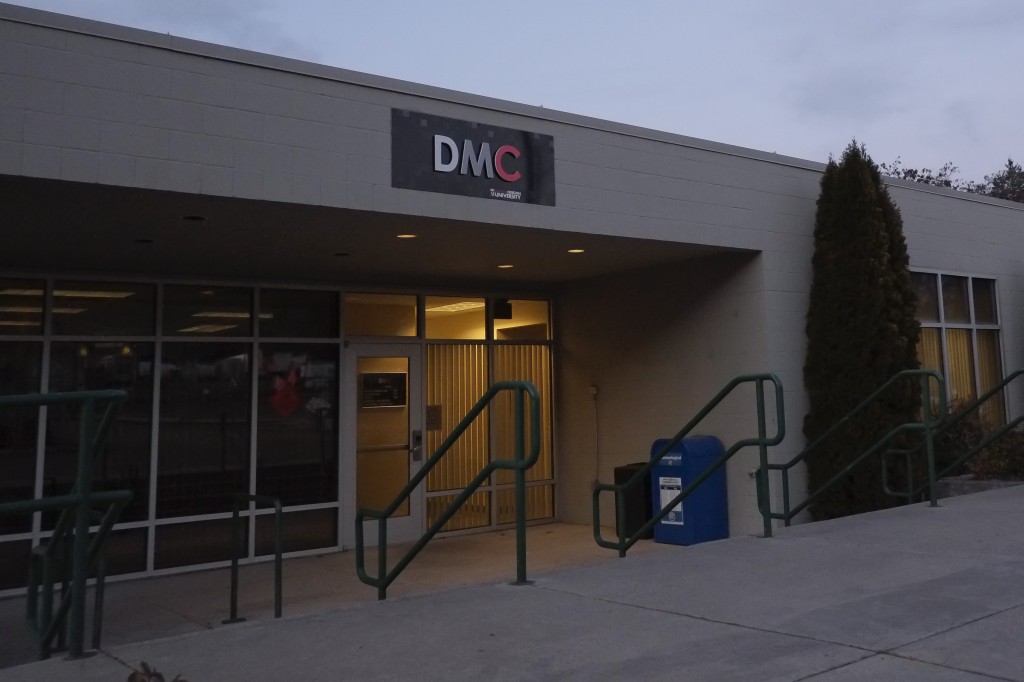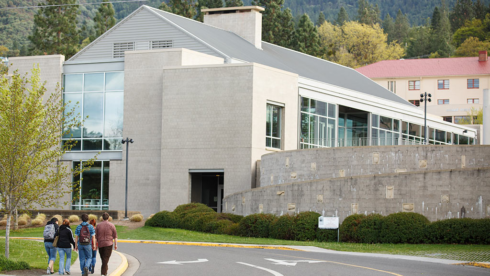
An open house on Feb. 6 introduced the public to the new and improved Rogue Valley Community Television studio, now known as the Southern Oregon Digital Media Center.
The change from RVTV to Southern Oregon DMC is designed to bring the old broadcast television center up to speed with contemporary technology by using digital broadcasting.
By switching to more digital media, the DMC is able to “bring local voices to the community as well as the worldwide web,” said Brandon Givens, who is the local access coordinator for the DMC. The switch is also intended to bring the center more in touch with Southern Oregon University’s academic mission.
Some of the changes that distinguish the DMC from RVTV include an improved facility, changes in staff, new technological equipment and infrastructure, as well as access to an online archive, which enables producers to submit their locally produced content online. This service is offered to anybody who wants to produce local content free of charge, although there is a charge for older material. Submission forms can be found in the DMC office at 1525 Webster St.
According to Givens the use of this database allows material, such as public proceedings to be recorded for posterity.
“Once something is submitted onto the archive, it’s up there for viewing, or review,” said Givens.
Local producers were also in attendance for the open house ceremony, including Mickey Fox who has produced material for RVTV for eight consecutive years.
“The new DMC will take some getting used to,” said Fox, although he added that “the database seems new and exciting.”
Brandon Fish, a small business owner, SOU student and local producer, has been working with RVTV for five years.
“[I’m] impressed with what they’ve done with RVTV,” said Fish. “The DMC has so much more to offer than what RVTV did before.”
Charles Douglas, who worked with Humboldt Community Access Television before becoming the assistant access coordinator for RVTV, also mentioned revitalizing SOU’s student radio station that was cut last term due to lack of involvement.
Students who were working with the radio station would be able to “convert discussion shows or talk shows to television relatively easy, and that the DMC would be a great facilitator for that purpose,” he said.



